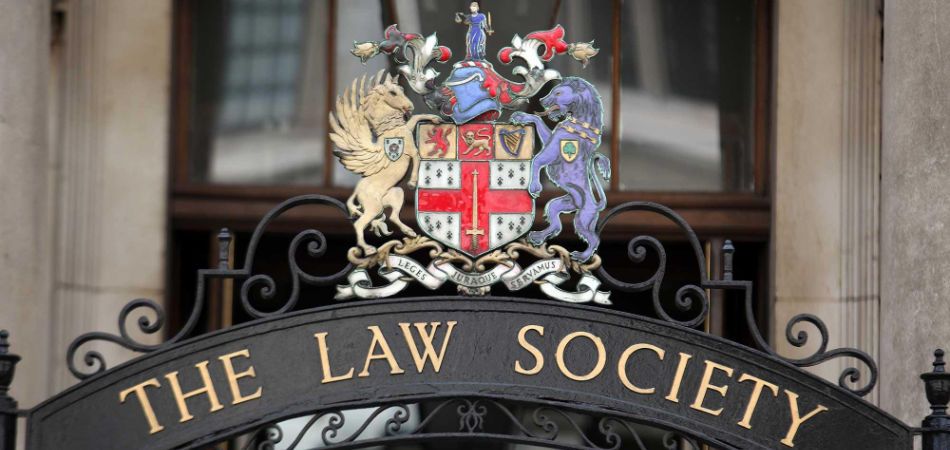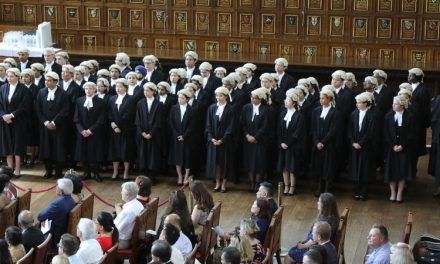
Camila Ferraro is this year’s President of the MTSA and is also a Jules Thorn Scholar. She was born in Colombia and raised in Cambridge. Camila is passionate about international criminal law and advocates for minority backgrounds at the Bar. Alongside her studies, Camila works as a Modern Slavery Support Worker at the Medaille Trust.
Previously printed in Counsel Magazine.
The Inns of Court are an essential part of the Bar. However, over recent years, there have been growing concerns about their relevance and longevity. In 2019, the Inns of Court and the Bar Standards Board (BSB) signed a Memorandum of Understanding, which clarified the duties of the Inns. The turn of a new decade calls for a review of how the Inns operate and what changes may enable them to create a more positive externality.
In other industries, such as chartered accountancy, a single organisation undertakes the roles equivalent to both the Inns of Court and the BSB. Closer to the Bar, this is also the case for solicitors whereby the Law Society, with the SRA as its arm, executes both roles. One may question why the Bar operates four Inns of Court. The answer is historical, with the Inns predicating both the solicitor and chartered accountancy institutions.
The Inns of Court emerged as Britain moved from a Roman civil law system to an English common law system in 1218. Both Henry II and Henry III issued proclamations prohibiting the teaching of civil law in the City of London. This led to common law practitioners relocating their premises and forming the Inns of Court. They served, as is suggested by their names, as places for barristers to lodge, train, and carry out their profession. Prior to the creation of the Law Society, there were also several Inns of Chancery. Following the First English Civil War, the Inns of Chancery served as accommodation and offices for solicitors. In 1823, the Inns of Chancery were abolished in favour of the Law Society.
Following a recent review, the BSB has concluded that the Inns of Court are a vital component of the Bar and that membership of an Inn should remain compulsory for students who are training for the Bar. Indeed, there is a heritage that the Inns have helped preserve at the Bar. The existence of the Inns is also enshrined in the Legal Services Act 2007, among other legislation. The debate has since transitioned to what more the Inns could offer to their members.
The BSB has delegated three formal duties to the Inns of Court. The first; the provision of membership to student barristers prior to their enrolment onto the Bar Professional Training Course (BPTC). The purpose being to facilitate the Inn’s duty to perform checks on their students and to also oversee their conduct. Each Inn ultimately needs to reach a conclusion on whether their student members are ‘fit and proper’ to be Called to the Bar. Should there be any alleged misconduct by student members, it is the Inn’s responsibility to investigate the matter.
The second duty of the Inns of Court is to provide Qualifying Sessions (QS) for students. These sessions are viewed as complementing the vocational training component of the BPTC. Each Inn is responsible for devising a programme of QS in line with the guidelines agreed with the BSB. QS can range from lectures and formal dinners to debating and mooting competitions. Longer programmes may also be eligible for consideration. For example, Middle Temple operates advocacy training weekends at Cumberland Lodge.
The third duty is to Call eligible members to the Bar. From 2021, this will include a standard Disclosure and Barring Service check for every member being Called.
Beyond the guidelines issued by the BSB, the Inns of Court also offer a space for members to develop a community of professional practice. The Inns are equipped with endowments to provide ample scholarships, and facilities such as the Library give members more reasons to visit them. However, I would argue that the most vital role of the Inns has been due to a more recent development. The re-introduction of the Inns of Court College of Advocacy brings to the Inns a real raison d’être. From September 2020, the Inns will, through the Inns of Court College of Advocacy, provide a Bar Training Course on their premises. This has considerably driven down the prices of the BPTC, with some academic institutions reducing their tuition fees from over £18,000 to £13,000.
One area that I would like the Inns to be more involved in is pupillage. The Inns currently offer student members a range of practical learning opportunities to better equip themselves in their quest for pupillage. For example, the Middle Temple Students’ Association annually hosts a series of pupillage events to help applicants. However, there are bigger obstacles pertaining to pupillage. In 2017/18 academic year, there were 1,624 students enrolled onto the BPTC. With an increasing backlog of candidates, there are now almost 3,000 applicants for pupillage positions annually. Meanwhile, only 435 pupillage positions are available. This means that a high proportion of aspiring barristers who successfully complete their examinations are not successful.
In light of these figures, I would recommend the Inns initiate a conversation regarding pupillage with the BSB. A detailed review of this matter may highlight some potential solutions. The BSB has been clear that pupillage is an important element of training for the Bar. However, there may be more that could be done to increase the number of pupillages on offer. Speaking to some barristers, limitations include a lack of space or resources from chambers. Although the Pupillage Matched Funding Scheme administered by COIC has led to a contribution of £60,000 per annum from each Inn of Court towards pupillage, many agree that the industry also faces a physical expansion problem. In my opinion, one solution could be the creation of a large co-working space with built-in collaborating environments. This may be difficult to execute, but a conversion of one of the grand gardens to such infrastructures may help chambers expand their practice. Additionally, a lesson learned from Covid-19 could be that a large percentage of work may be conducted from home.
It is not an expectation for the Inns of Court to undertake more activities than they are capable of. However, there are areas where the Inns could step in. If they were to collaborate with one another and provide a direct co-working space, it might ease the pupillage queue as well as catalysing industry growth.




